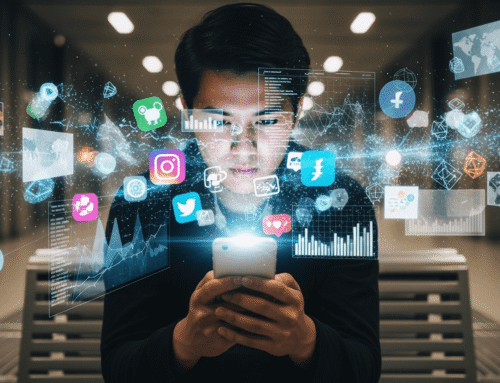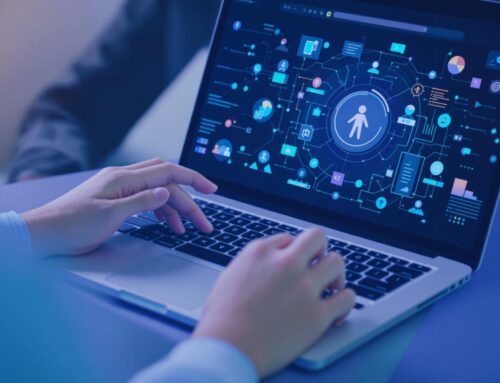AI is transforming education through sophisticated personalized learning systems that adapt in real-time to individual student needs and learning styles. These intelligent platforms analyze performance data, identify knowledge gaps, and automatically adjust content difficulty, creating truly customized educational experiences that were impossible just a few years ago.
Key Takeaways
- AI-powered learning platforms improve student outcomes by up to 30% on average compared to traditional methods
- Personalized learning systems use real-time assessment data to create custom learning paths for each student
- Schools implementing AI education tools report a 34% increase in math proficiency and 27% improvement in reading comprehension
- The AI education market is growing at 44.3% annually, expected to reach $48.7 billion by 2030
- Companies utilizing AI-driven training programs see 42% higher productivity and improved employee retention
The AI Education Revolution: Transforming How We Learn
Education is undergoing a profound transformation as artificial intelligence reshapes how we teach and learn. Gone are the days of one-size-fits-all education. Today’s AI-powered systems create custom learning experiences that adapt to individual needs across K-12 schools, universities, and corporate training programs.
These smart systems continuously analyze student performance, predict outcomes, and adjust content difficulty in real-time. This level of personalization was simply impossible before advanced AI technologies became available. According to Forbes, approximately 60% of educators now use AI tools daily in their teaching practice.
The growth in this sector is remarkable. Future Data Stats projects the AI education market will expand at a 44.3% compound annual growth rate, reaching a staggering $48.7 billion by 2030. This rapid expansion reflects both the effectiveness of these tools and their growing acceptance among educators and institutions.
Measurable Impact: How AI Boosts Academic Performance
The benefits of AI in education aren’t just theoretical—they’re measurable and significant. According to McKinsey & Company, AI-driven educational platforms improve student outcomes by 30% compared to traditional teaching methods. This aligns with Stanford’s research showing students using AI personalized learning tools experienced a 26% increase in academic performance.
Recent studies from 2024 further confirm these benefits, revealing a 34% rise in math proficiency and 27% increase in reading comprehension in schools equipped with AI learning tools. MIT’s case study demonstrates an average test score improvement of 23% when using AI educational resources.
Real-world examples show equally impressive results. New Town High School achieved a 30% increase in test scores after implementing Maths Pathway, an AI-powered learning platform. These improvements stem from AI’s ability to identify and address individual learning gaps while adapting to each student’s pace and learning style.
Inside the Technology: How AI Personalizes Learning
Understanding how these systems work reveals why they’re so effective. Platforms like DreamBox and Smart Sparrow dynamically adjust lesson difficulty based on a student’s real-time responses. When a student struggles with a concept, the system provides additional support; when they excel, it increases the challenge.
Carnegie Learning’s AI tutors simulate one-on-one teacher interactions, providing personalized guidance that would be impossible for a single human teacher managing a classroom of 25+ students. These AI tutors can respond to thousands of potential learning paths, creating a truly individualized experience.
Predictive analytics represent another powerful application. At Ivy Tech, AI systems flag at-risk students within just two weeks of a course starting, enabling early intervention that has improved pass rates by 98%. This shift to continuous assessment rather than periodic testing allows for immediate corrective action when learning issues arise.
The technical foundation of these systems involves sophisticated algorithms that can:
- Analyze patterns in student responses to identify knowledge gaps
- Predict which concepts a student will struggle with before they encounter them
- Recommend personalized learning resources based on individual learning styles
- Adjust difficulty levels automatically to keep students in their optimal challenge zone
Leading Platforms Transforming Education
Several standout platforms are leading this educational transformation. Century Tech provides adaptive lesson planning that has shown a 20-30% boost in student engagement. Its AI creates personalized learning paths for each student while giving teachers valuable insights into class and individual performance.
Squirrel AI has gained recognition for its sophisticated algorithms that continuously optimize learning pathways. The platform breaks down subjects into thousands of knowledge points and creates custom routes through material based on each student’s strengths and weaknesses.
Maths Pathway focuses specifically on mathematics education with individualized modules that have resulted in higher STEM scores across multiple grade levels. The University of Sydney’s Smart Sparrow platform enhances inclusivity through adaptive pathways that accommodate different learning styles.
For students with special needs, Help Me See from the University of Alicante improves campus accessibility for visually impaired students through AI-powered assistance. This highlights how AI can make education more accessible for all learners, not just those who fit traditional educational models.
Workforce Preparation: Bridging the Skills Gap
The impact of AI learning extends well beyond traditional education into workforce development. According to the World Economic Forum, by 2025, 50% of employees will require significant reskilling or upskilling to remain competitive in the job market.
Companies that have adopted AI for employee training have seen remarkable results. IBM reports a 42% productivity boost among employees who completed AI-driven training programs. These platforms identify specific skill gaps and deliver targeted programs, resulting in 30% higher job placement rates for participants.
The business benefits extend to retention as well. Deloitte found that 74% of businesses observed improved employee retention after adopting AI-driven development programs. This makes these systems not just educational tools but strategic business investments with measurable returns.
AI training platforms excel at:
- Identifying specific skill gaps in individual employees
- Creating personalized development plans based on job requirements
- Adapting training content to match each employee’s learning style
- Tracking progress and adjusting training in real-time
- Predicting future skill needs based on industry trends
Inclusivity and Accessibility Through AI
One of AI’s most promising educational applications is enhancing inclusivity and accessibility. Traditional education often struggles to accommodate diverse learning styles and abilities, but AI tools provide alternative learning pathways for different needs.
Platforms like Smart Sparrow and Help Me See demonstrate how AI can enhance inclusivity through assistive technology. For neurodivergent learners, personalized approaches offer significant benefits by adapting to individual processing styles, pacing, and content presentation preferences.
Language barriers in multicultural classrooms can also be addressed through AI translation tools that make content accessible to non-native speakers. This ensures all students can engage with the material regardless of their primary language.
The flexibility of AI systems allows them to accommodate:
- Different learning paces without stigma
- Various content presentation formats (visual, audio, text)
- Adaptive testing that reduces test anxiety
- Customized difficulty levels that keep all students appropriately challenged
The Future of AI Learning: Emerging Trends
Looking ahead, several emerging trends will likely shape the future of AI in education. The integration of virtual and augmented reality with AI will create immersive personalized learning environments by 2025. Imagine history lessons where students can “visit” ancient civilizations tailored to their learning objectives and interests.
AI-powered microcredentials are poised to transform skills certification, allowing for more granular recognition of competencies. This approach makes education more modular and responsive to rapidly changing workplace requirements.
Gamification continues to evolve with innovations from platforms like Microsoft’s Reading Coach and ClassDojo. These systems use game mechanics to boost engagement and motivation while collecting valuable data on student performance.
Companies like ibl.ai are developing platforms that generate content tailored to specific learning styles. Rather than simply adapting existing content, these systems can create entirely new materials optimized for individual learners.
Ethical Frameworks for AI in Education
As AI becomes more entrenched in education, ethical considerations become increasingly important. Data privacy concerns require strict guidelines for managing student information, particularly for younger learners. Educational institutions must balance innovation with responsible AI use.
Transparency in algorithmic decision-making is essential when these systems affect educational outcomes. Students, parents, and educators deserve to understand how AI makes recommendations and adjustments that impact learning paths.
Developing standards for unbiased AI educational tools is another critical area. These systems must be designed to provide equitable learning opportunities across demographic groups, avoiding the amplification of existing educational disparities.
Moving forward, the education sector must address:
- Creating clear data usage policies that protect student privacy
- Developing frameworks for algorithmic transparency
- Ensuring equitable access to AI educational tools
- Maintaining appropriate human oversight of AI systems
- Regular auditing for bias in AI educational recommendations
Sources
Psico Smart – The Role of Artificial Intelligence in Personalized Learning and Development
Podcastle – AI in Education
GSI Education – AI-Driven Personalised Learning Will Become Mainstream in 2025
Digital Defynd – AI in Schools Case Studies
PowerSchool – AI in Education
Future Data Stats – Artificial Intelligence in Personalized Learning and Education Technology Market
ibl.ai – AI Revolutionizing Education: From Personalized Learning to Scalable Solutions











